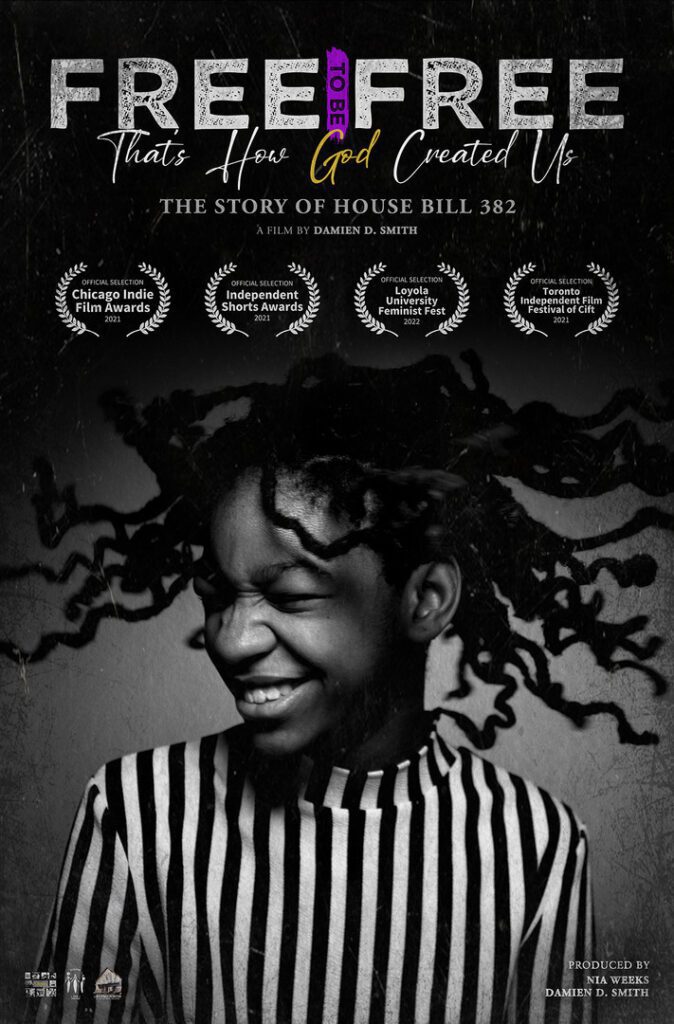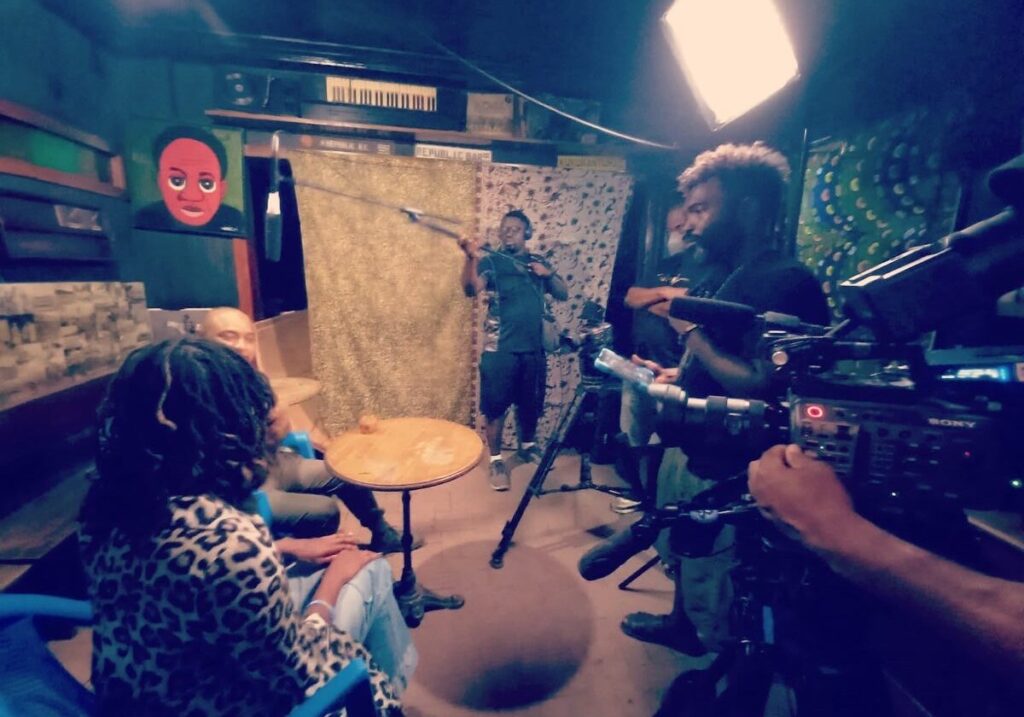Centering our textured humanity in the fight for political equity.
If you had told me 10 years ago that I’d be using my mighty pen to fight for American democracy one day, I definitely would have laughed in your face.
I had long given up on the possibility that this place could ever actually live up to its own standards, that the law could possibly ever favor Black and Indigenous people. My heart has long been in Africa. But then I met Nia Weeks and Damien D. Smith–just as Nigerian youth were proving that democracy is a real thing, with the transparent, landslide victory of a political unknown.
I’d often argue with my brother Fasola about whether civic engagement was worthwhile. I felt it mainly a waste of energy in a country designed to keep Black people enslaved by any means necessary. He fought me long and hard, and then Nia and Damien came along and proved him right.
“If you think your vote doesn’t matter, recognize that they spend billions to make you feel that way. What’s the easiest way to suppress a vote? Make people feel like their vote doesn’t matter. Because then you don’t have to do anything else. And you don’t have to worry about lawsuits.”
Nia Weeks
Watch Nia’s Black Genius.
Leave it to Black women to make America worth its own salt. Leave it to Black women to mobilize for the end of chattel slavery and the end of Jim Crow. Leave it to Black women to redeem the place that has swallowed so much of her children’s blood.
Care for Your Coils at the Polls
I met Nia Weeks when the film she produced with Damien D. Smith was submitted to NOIR FEST. Never would I have thought that a film about Black hair could bring me to tears. The film did such a tremendous job of explicating the emotional and psychological intricacies of living with Black hair in America.

Free to be Free: The Story of HB 382, a film about Louisiana’s journey towards the decriminalization of Black hair, shed a glowing light on the Black anxiety that threatens to kill us, just on the basis of our visage not being acceptable to our oppressors. The tragic nature of this cultural phenomenon evokes empathy in the least empathetic, thanks to the stunning visuals, the intentionality and the striking acumen of this film.
“When Black women suffer from race-based hair discrimination, it affects our quality of life…causes us to suffer from anxiety, depression, and a loss of confidence and self-esteem.”
Detangled
I had never seen the political nature of our hair treated with such kindness, care and power. Damien’s poetic language of filmic storytelling captured the heart of what Black people feel about our hair and its policing. Having dealt with my own hair trauma–alopecia almost killed my confidence, while exacerbating long held health issues–I felt the urge to do everything in my power to champion this film, and the people behind it.
In Free to be Free, Nia and Damien documented their collaborative efforts to get the CROWN Act passed in Louisiana, through the eyes of the many women whose lives the bill would affect. Considering the history of how this country has legislated Black women’s bodies differently from other women, the passage of the CROWN Act in multiple states is a huge milestone for human rights in this country.
When the bill was eventually passed in Louisiana, it included language banning discrimination based on “skin color, facial characteristics, hair texture, natural hairstyles and protective hairstyles.” Isn’t it wild that this was still needed in 2022? Note that many states still have yet to ratify this bill.
Free Hair is a Human Right
While it may seem minor to some, the reality is that when Black women suffer from race-based hair discrimination, it affects our quality of life. The idea that we need to adhere to societal expectations regarding our appearance causes us to suffer from anxiety, depression, and a loss of confidence and self-esteem.
Everyday, Black people wake up and instead of studying vocabulary words one last time or prepping for a board meeting, we grapple with the emotionally taxing decision on how to wear our hair to prevent being removed from school or fired from our jobs. Meanwhile, we’re forced to ignore that what we do to make our hair more presentable may have severe health consequences. Case in point: many producers of hair relaxer are currently facing lawsuits due to the link between their products and the cancer their customers later contracted.
The idea that Nia and Damien could take something as simple as our hair and–using film–effectively secure significant human rights protections for millions of Black people inspires me to no end. Their ability to rapidly mobilize the masses in support of these efforts is absolutely awe-inspiring.

Because of their legislative prowess, and their ability to nearly double voter turnout in just a couple of years, I have come to believe that this country actually can be saved through the political process.
At a time when I questioned if and how this NOIR dream could continue, Free to be Free emerged as proof positive that indeed film could totally transform our experience on this planet as Black people. Lucky for you and I, Nia and Damien’s company, Detangled, became a NOIR Labs client. This is empowering us to tell their story in a more nuanced and thorough way than it has ever been told.
The Detangled team has effectively convinced this skeptic that America may be worth fighting for, even for those of us who have been terrorized by the very existence of this place.
Let Nia and Damien tell it, this won’t be for much longer.
